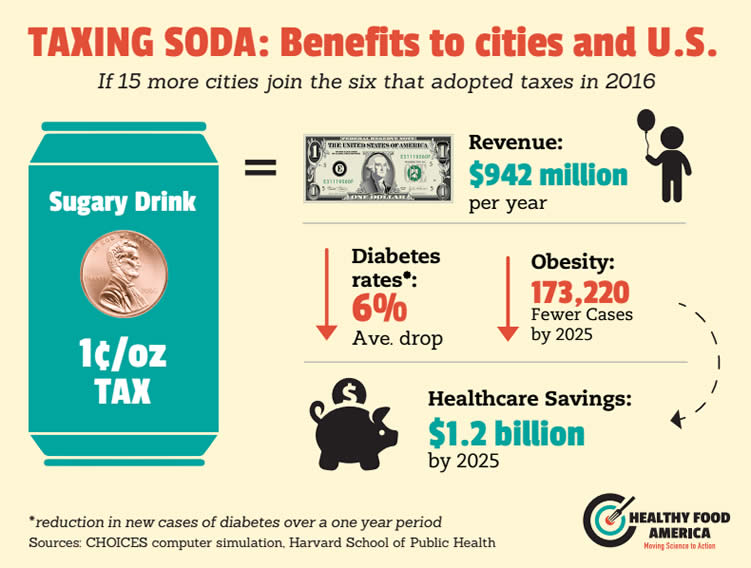It has been a while since I posted an article here at the China Daily. I would like to say it has been because I have not been able to find my muse, but that would be a very big lie. Events have been occurring in my real life at work that have reminded me too much of past shows of ‘Corporate Armageddon’ that I have had a front row seat for the performance. It is times like this where people with sharp tongues can find them hacked off in order to keep ‘harmony’. If nothing else, it does gives appreciation to those poor souls that had to suffer the ‘troubles’ of the 1960s and 1970s in P.R. China. However, there are other topics that can be covered that those in the supposed cubicles of power in my neck of the woods cannot really penalize people for commenting on, such as the on going soap opera that is the Cook County Sugary Beverage Tax.
For those that are not familiar with the ways of the U.S. Tax Policies – I will describe a short summary. Where I live, tax laws can be written at the local, state, and federal level and for various things, such as amount of money earned working a job or the sale of a particular good or service. It is reason you may here from relatives visiting the U.S. that same thing sold in one part of a place visited can have a higher cost than in another location. As of a few weeks of the publishing of this article, a tax was set on the sale of ‘sugar laced beverages’ in the County of Cook, which compasses the City of Chicago.
To say this tax has been sensitive issue would be an understatement, as very powerful organizations for and against this tax have paid millions of dollars in advertisements before the tax was written into law and even more millions of dollars since in an attempt to go forward or to stop a repeal of it.
At the heart of the matter is the idea that too much sugary drinks have been main factor in the contribution to the large amount of obesity in the U.S. population, and a large tax on those drinks will help in reducing that amount, and the money raised from those still buying those drinks will pay for treating those with obesity. In short, this is what people like myself would call a ‘Sin Tax’, where the ‘sinful acts’ that are legal are taxed for the ‘greater good’ of society. It is nice idea in theory, but in real life they tend to be another story. Much like the attempts to prohibit or control alcohol, gambling, drugs, and other activities over the decades – there is always the issue of governmental entities siphoning funds initially raised from these efforts from their original goals of stopping the use of an item or the practice of an activity to the day to day activities of other government functions.
In the end, a said ‘sin’ is still practiced at a lower level or away from a tax’s particular reach, while said government is now desperate to find another ‘sin’ to keep their programs running. To make matters worse, ability for a local business to comply with one government tax law for one program can mean it will run afoul with another government law for another program – as it was quickly evidenced with the Cook County Tax and the U.S. Federal Assistance Program (SNAP) - https://www.usnews.com/news/best-states/illinois/articles/2017-08-10/feds-cook-county-soda-tax-a-threat-to-food-stamp-funds. It is when this faux-pas came up, it exposed a nasty little truth. Those folks on federal assistance that buy sugary beverages are exempt from the very efforts to stop them from becoming obese and thus requiring further federal assistance from medical programs. If there was a real effort to stop the obesity issue, then SNAP rules would be rewritten to prevent recipients from buying these items to begin with - https://www.fns.usda.gov/snap/eligible-food-items - but that has not happened.
So, what will the future hold? Most likely than not, the tax will remain in Cook County for the next few years, as those with the ability to avoid the tax will do so. What ever funds that are raised from the tax will eventually be moved from paying for the local county hospitals to various other projects, or not outright pocketed by corrupt officials in Cook County. Eventually, once this ‘vast source of revenue’ dries up, someone will have the bright idea that some other activity or item is now a ‘Sin’ and thus be taxed in order to preserve the ‘Greater Good’. However, by that time comes, swaths of Chicago and ‘inner ring’ suburbs will be mere shells of themselves, in term of population and taxable business entities. So there will be a call for adjacent counties to Cook, if not the entire state of Illinois, to pay ‘their fair share’. Given my experiences with the politics of the City of Detroit and Counties of Macomb and Oakland, and the rest of the state of Michigan in the 1980s to 2000s, those efforts will be laughable at best. For when you start attempting to drive away ‘all of the sinners’, more often than naught you are left alone when the real evil appears.
st1\:*{behavior:url(#ieooui) } /* Style Definitions */ table.MsoNormalTable {mso-style-name:"Table Normal"; mso-tstyle-rowband-size:0; mso-tstyle-colband-size:0; mso-style-noshow:yes; mso-style-parent:""; mso-padding-alt:0in 5.4pt 0in 5.4pt; mso-para-margin:0in; mso-para-margin-bottom:.0001pt; mso-pagination:widow-orphan; font-size:10.0pt; font-family:"Times New Roman";}







Comment